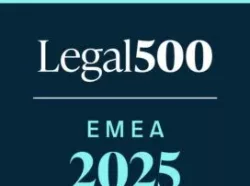R (Hussain) v Sandwell Metropolitan Borough Council (2017) EWHC 1641 (Admin)
Green J has ruled that Sandwell MBC (‘the Council’) can continue its investigations into allegations of serious misconduct by one of its elected members (‘the C’), after dismissing his application for judicial review. This is one of very few judgments on the meaning of ss 27 and 28 of the Localism Act 2011 (‘LA 2011’) relating to standards, and provides helpful guidance for local authorities on the scope of their powers to investigate allegations of Councillor misconduct.
The C sought to challenge the continuation of any investigation into allegations against him, on the grounds that the Council had acted ultra vires, and the process had been politically motivated or infected by actual or apparent bias. He also challenged the Council’s decision to publish 3 separate reports into the allegations against him (collectively ‘the Reports’), on the grounds that publication breached his rights under Art. 8(1) ECHR and as a data subject under the Data Protection Act 1998 (‘DPA 1998’).
Green J dismissed each of the C’s grounds. The Judge held that the Council had ample powers to investigate allegations of misconduct against elected members, including allegations that pre-dated the LA 2011, under ss 151 or 111 of the Local Government Act 1972, and/or ss 1, 27 or 28 of the LA 2011. The Council had a duty to adopt formal ‘Arrangements’ for investigating allegations of misconduct under s 28 of the LA 2011, but this did not preclude it from carrying out any investigations other than under those Arrangements. Instead, the Judge held that, ‘What the [LA 2011] requires is that once an Authority determines upon a formal inquiry into an allegation of breach of a Code [of Conduct] then it must, prima facie, utilise its formal arrangements. But there is no prohibition on pre-formal inquiries and investigations.’
In relation to actual bias, the Judge recorded that it was common ground that a comment about the C’s family made by the solicitor who produced one of the three Reports was ‘objectionable and wholly unacceptable’. However, in light of the solicitor’s report and underlying materials taken as a whole, the Judge concluded that the solicitor had not been motivated by any actual bias towards the C.
In relation to apparent bias, the Judge found that ‘a relevant third party might consider that there was a real possibility that the [solicitor’s] Report itself could be affected by bias.’ However, there was ‘no risk’ that any such bias could ever ‘affect a future decision, and decision making process, adopted by the [Council’s] Standards Committee.’ This was for a number of reasons, including that any such bias was not on the part of the Council; the Council had sought further, independent advice from Leading Counsel on the solicitor’s report; and the solicitor’s report would not be before the Council’s Standards Committee.
The Judge also rejected C’s claim of political motivation. He accepted the Council’s evidence, some of which – unusually for judicial review proceedings – had been given during cross-examination, that none of its decisions had been taken for an improper political purpose.
In any event, the Judge held that even if he had found that the Council had acted unlawfully, he would not have granted the relief sought by the C. Even in that case, he would have allowed the Council to continue with its procedures, on the grounds that: ‘none of the alleged breaches would be material or have any real impact on the fairness of the investigatory procedure going forward’; and ‘the [C] will have a full opportunity to present his case and establish that the allegations against him are to be rejected’ at any hearing of the Standards Committee in due course.
The Judge also considered, “out of an abundance of caution”, safeguards going forward, and directed that, as indicated by the Council, it would not rely on the solicitor’s report in any hearing before the Standards Committee
In relation to publication of the Reports, the Judge ruled that, ‘There is an important public interest in openness and transparency both of which go hand in glove with accountability.’ This public interest justified publication of the Reports under Art. 8(2) ECHR, and meant that publication satisfied the Data Protection Principles under the DPA 1998.
Of more interest to data protection specialists, the Judge ruled that if he had found a breach of the DPA 1998, he would not have refused relief on the grounds that the C could have brought an ordinary Part 7 claim for breach of the Act, rather than an application for judicial review. This was not an adequate alternative remedy, ‘since it includes relief granted in the High Court of which the Administrative Court is a component part.’
Peter Oldham KC acted for the Claimant, instructed by Weightmans LLP. James Goudie KC and Ronnie Dennis acted for the Council, instructed by Maria Price (Council Solicitor).








